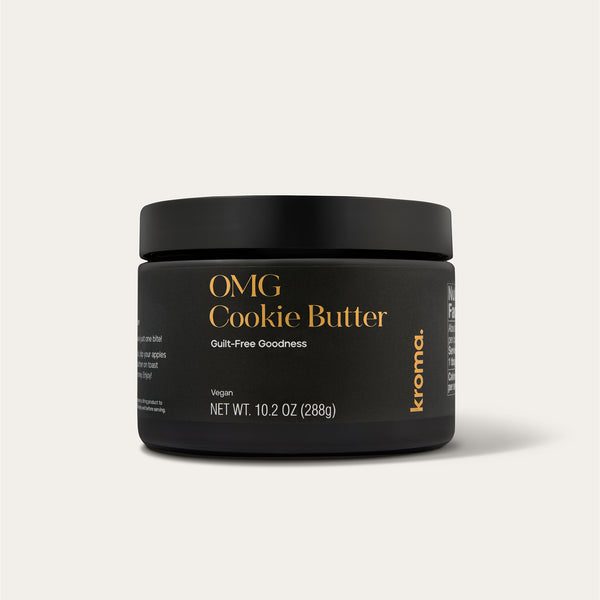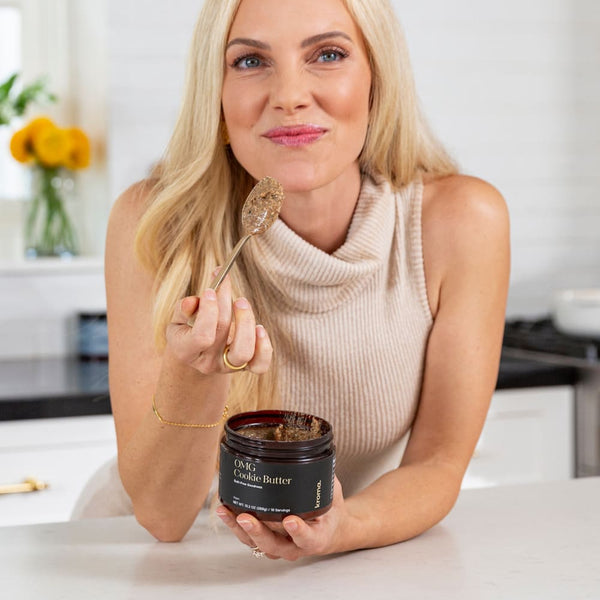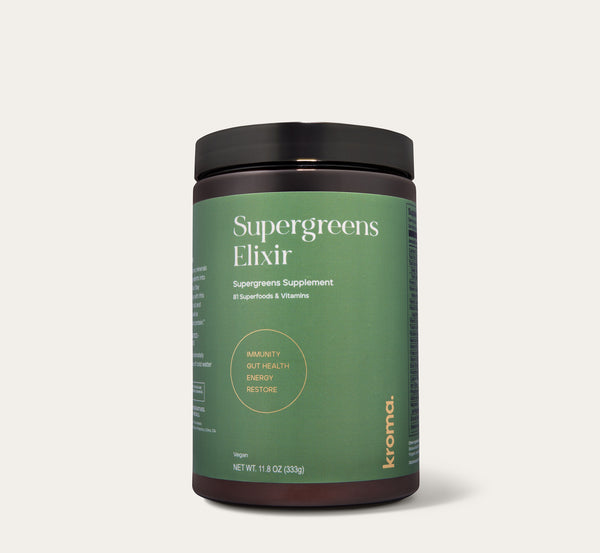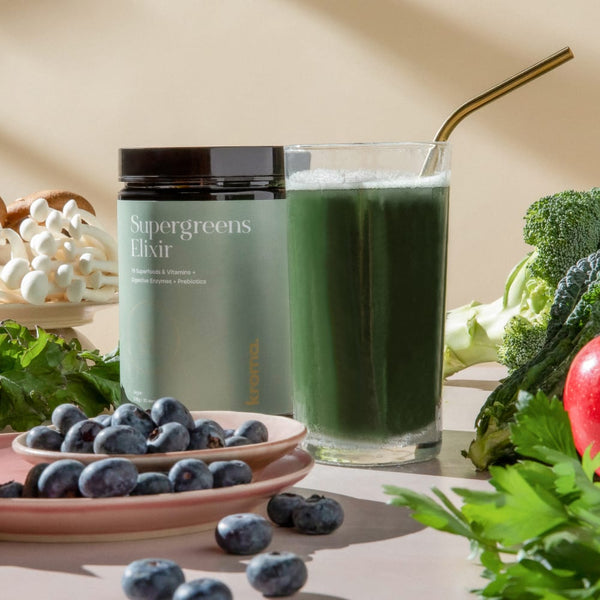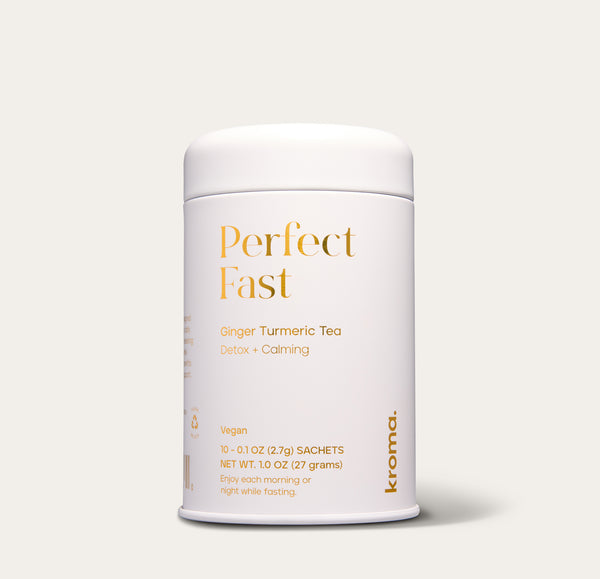The holiday season may have come and gone, but the effects of indulgence can linger. Whether you’re feeling the aftereffects of festive feasts or simply seeking to reestablish balance after a season of treats, now is the perfect time to reset gently and sustainably.
Overindulgence—whether in December or any other time of the year—can leave our bodies feeling out of sync.
The good news? You don’t need extreme measures to feel better. With thoughtful strategies, you can restore balance, support digestion, and embrace a healthier rhythm.
Certified nutritionist Dana James shares her expert insights on how to reset both your body and mind, helping you feel energized, balanced, and ready to tackle the months ahead.
Release Guilt and Reframe Indulgence
Before diving into physical solutions, James emphasizes the importance of addressing the psychological aspect of overindulgence - because your body isn’t going to be able to heal if you’re stuck in a place of guilt, punishment and self-loathing.
"Acknowledge that December is a time for more decadent food, while January is the time for being discerning with your food choices," James explains. "This is the yin and yang of eating - and of life. This helps create balance without unnecessary guilt."

She encourages you to consider the intention behind your indulgence: “Were you eating out of joy and connection or using food as a distraction?”
If your indulgence was accompanied by laughter, connection, and genuine enjoyment – celebrate that. These moments make life rich and meaningful. If overindulgence served as an escape mechanism, use this awareness to make different choices next time, like taking a winter walk or setting healthy boundaries with challenging social situations.
Either way, release what happened and see today and tomorrow as a clean slate.
What Happens to Our Body When We Overindulge
When we overindulge, our body experiences a cascade of effects that extend beyond just feeling full, or even stuffed. "The digestive system becomes overwhelmed," explains James, "triggering a series of physiological responses that can leave us feeling uncomfortable and out of balance." This can manifest as bloating, irregular digestion, and decreased energy levels.
These responses typically include:
- Blood Sugar Levels Spike Your body releases extra insulin to process high amounts of sugar and refined carbohydrates, leading to energy crashes and increased cravings.
- Inflammation Surge Rich, fatty foods and alcohol can trigger inflammatory responses in the digestive tract, leading to bloating and discomfort.
- Gut Microbiome Disruption Sudden changes in eating patterns can temporarily disrupt the balance of beneficial gut bacteria, affecting everything from digestion to mood.
- Liver Overload Your liver and gall bladder work overtime to process excess fats and alcohol, potentially leading to feelings of sluggishness and fatigue.
- Disrupted Sleep Rich foods and alcohol can interfere with sleep quality, further impacting how you feel the next day.
Thankfully these effects are temporary, and with the right approach, you can help your body return to balance quickly and effectively.

How to Bring Your Body Back to Balance
The key to recovery lies in supporting your body's natural healing processes while providing the nutrients it needs to restore balance. Here's James's strategic approach to do so:
Immediate Relief Strategies
- Intentional Hydration Start your day with warm lemon water. The mild bitterness of the lemon stimulates detoxifying liver enzymes. Similarity, you can enhance your hydration with nutrient-rich beverages such as electrolytes, mineral water, and broths. You get a double benefit; minerals and hydration.
- Strategic Movement Gentle exercise like walking or yoga can help stimulate digestion and reduce bloating without adding stress to an already taxed system. Try to incorporate natural movement several times a day. Bonus points if you do so after a meal as it helps to keep glucose levels at bay.
- Digestive Support Sip on liquids with digestive aids to stimulate motility and decrease bloating. Look for tonics and tinctures with ginger, peppermint, or fennel tea between meals, and consider incorporating prebiotics and probiotics into your daily routine.

Strategic Reset: The 5-Day Restoration Plan
Kroma's 5-Day Reset (5DR) provides a structured yet gentle approach to restoring digestive balance. Here's how it works with your body's natural healing processes:
Day 1: Gentle Transition
- Focus on easily digestible, nutrient-dense foods
- Emphasize hydration with mineral-rich fluids
- Support natural detoxification pathways
Day 2-3: Restore and Repair
- Introduce gut-healing compounds
- Balance blood sugar levels
- Support healthy inflammation response
Day 4-5: Rebuild and Strengthen
- Optimize nutrient absorption
- Restore beneficial gut bacteria
- Establish sustainable eating patterns

As you implement these reset strategies, focus on how you want to feel rather than what you're trying to avoid. This positive approach helps create sustainable habits that support both physical and emotional wellbeing.
The Path Forward
Remember that occasional indulgence is part of a balanced life. The goal isn't to achieve perfect eating but to develop a resilient relationship with food that can accommodate both celebration and nourishment.
Every reset is an opportunity to learn about your body and refine your approach to wellness.
The most successful approach to wellness includes both celebration and restoration. By being prepared with effective reset strategies, you can fully enjoy life's pleasures while maintaining your health goals. With Kroma's 5-Day Reset and these expert strategies from Dana James, you have the tools to bounce back from overindulgence while maintaining a positive, balanced relationship with food.
Dana James is a certified nutritionist and functional medicine practitioner specializing in cognitive behavioral therapy and eating psychology.








